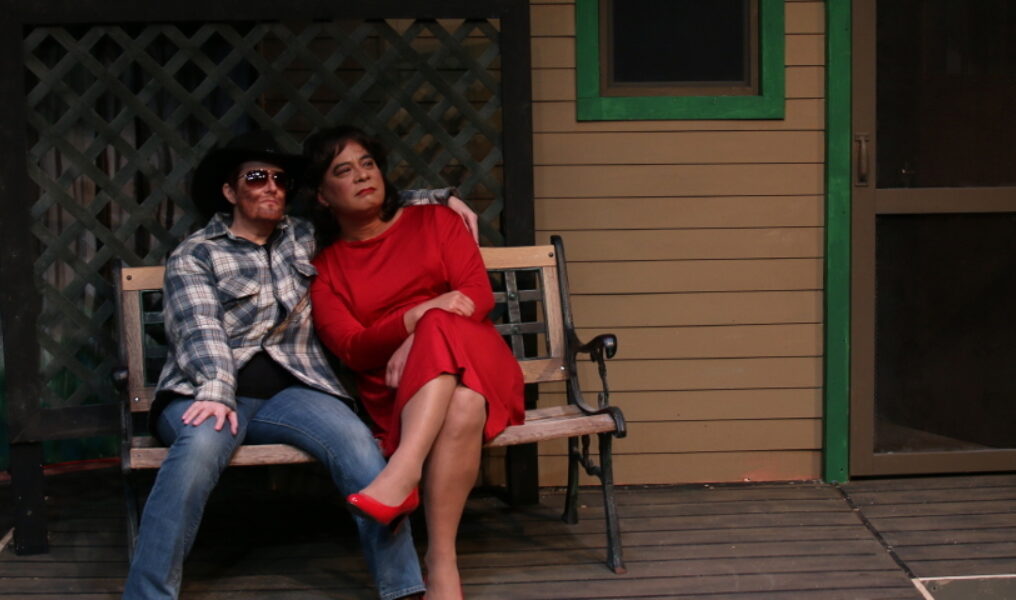Robert Eads was 51 when he was diagnosed with ovarian cancer in 1996. Despite him immediately seeking medical help, more than a dozen medical providers rejected his case, feeling that taking on a transgender man would damage the reputation of their practice. By the time Eads did find treatment in 1997, the disease had become quite advanced. Eads' story originally came to the public eye in a 2001 GLAAD Media Award-nominated and Sundance Film Festival Grand Jury Prize-winning documentary called "Southern Comfort."
The story follows Eads during a year of his life and sheds light on the fact that due to prejudice that still exists today, Eads' circumstances are not unique. In fact, the National LGBT Cancer Network reports that ovarian cancer will affect 1 in 72 people born with ovaries. Though the 5-year survival rate is at 90 percent when caught early, 75 percent of diagnoses are made in the later stages of ovarian cancer.
The story made its way into the public eye again in 2017 when Dan Collins and Julianne Wick Davis composed a musical stage adaptation of the story dedicated to bringing it to a new audience. Now, from April 26 through May 12, Royal Oak's Stagecrafters theatre will bring it to Metro Detroit. Directing the upcoming performance is Jay Kaplan, a 20-year community theater veteran and ACLU of Michigan LGBT Project lawyer who said that the story was one about which he feels "passionately." Ahead of the show, Kaplan filled BTL in about the differences in the musical adaptation, taking care to do justice to Eads' story and the musical's overall "uplifting" message of "love and understanding triumphing."
Since its musical adaptation how has "Southern Comfort" changed from the original documentary?
So, in the documentary Robert pretty much had the support of his family. He had his son and his grandchild, and they spent time with him. In the musical what they've done is they've demonstrated that Robert doesn't have that kind of support from his parents, he's pretty much been rejected by his family and the people that are closest to him have also been rejected by their family. So, they've created their own family together, their chosen family. What was maintained for the documentary is that Robert is in a relationship with Lola, a transgender woman, and how she comes to move in with him to take care of him until the end of his life and that's certainly reflected in the musical as well.
Chosen family is for many people in the LGBTQ community their main source of support.
Right. And this show focuses on how just about every character has been rejected by their family. They've encountered difficulties in terms of people accepting them for who they are in terms of being transgender, for being gender non-conforming or, in the case of Melanie, who is a cisgender woman, for being married to a transgender man. And they've come together to kind of create their own support unit for each other as a result of the rejection and the discrimination that they've encountered not only from their families but by society itself.
You suggested that Stagecrafters choose "Southern Comfort" as a musical during this season. Why drew you in about this particular musical?
I always like to follow what's new in the theater and what's happening in New York [and] I became aware of this production and I was very interested in it. I was able to get a copy of the script and I contacted the composer of the show because there wasn't any commercial recording of the music and he was kind enough to send me the demo recording of the musical score and I fell in love with it. It's this beautiful country, bluegrass musical score, very heartfelt songs. So, I submitted that to the 2nd Stage committee and, thankfully, they decided to choose the show. And I believe we are the first community theater production of this show anywhere in the country. It was just done in New York City in 2016, there's currently a production going on in Chicago but it's a relatively new show and certainly the first time it's ever been done in Michigan.
How did you go about casting? Were you mindful of choosing a transgender cast to portray the characters in the musical?
It was a challenge. The production being done in Chicago features all transgender actors and it was my hope that we could also have the performers reflect the stories that were being told so we did a lot of outreach to organizations, different trans organizations and community members and what we found at this point in time is that the known talent pool is, in terms of people who are out and trans, is relatively small in this area. And then, it's not enough to say that, 'Hey, I've got a play that deals with trans people, come and join it,' I think it takes some time for certainly members of the trans community to become aware of groups like Stagecrafters, to feel comfortable and it's also their availability. Community theatre is volunteer, you rehearse at night because people have day jobs and not everybody is available to do a show, to rehearse at night, not everybody has transportation to Royal Oak to rehearse. So, right now, we have one person in our cast who self-identifies as transgender. Certainly I would have liked to have tried to have gotten more people from the community and I think we definitely tried and can continue to do better, I know that the actors who are playing all these different parts, they're very much committed to being truthful and sensitive and understanding of the characters that they're playing and to be sensitive to the experience to the person that is transgender and wanting to do it the right way and to be accurate and also to be true to these parts.
Do you think this show will raise awareness about the issues faced by the transgender community as well as relative dearth of content that prominently features transgender stories?
I hope so. There's not too many shows that really focus on transgender people and their experience. This show s not written by authors who are members of the transgender community and I think at this point we felt that we need to have more shows about transgender people, written by and performed [them, too]. Hopefully, this [show] will create an impetus that we need to see that work. I'm very happy that for the first time I'm aware that I've been involved in community theater for more than 20 years that we have a show that's focusing on these characters that's focusing on their lives and what I'm hoping is that not only will that create greater understanding with the audiences who come see the show, but we'll see more theater that reflects diverse lives that includes the lives and gender non-conforming people.
This show deals with serious, topical issues facing the transgender community and certainly features some poignant moments. What are some that stand out to you that you hope the audience can benefit from seeing?
You know, with a lot of musicals, sometimes the script is kind of filler in-between song cues, but that's not the case in this show. There's some very, very strong scenes. And among the songs there's a song called "Bird" that the character Lola sings as a trans woman. Not only is the melody beautiful, but the lyrics where she talks about looking at herself in the mirror and she doesn't see who she really is and that by closing her eyes and imagining who she feels inside she feels free like a bird. I've talked to a number of people who we were recruiting to audition to the show who aren't transgender and they said to me, "Jay, that song so reflects my own experience and how I felt. I know who I am and yet when I hear the sound of my voice" — for Lola this deep male-sounding voice. Or, "I look at myself in the mirror and I have masculine features in my face," or maybe, "The way my body is it's so incongruent with who I really know who I am." And to be able to see past that reflection in the mirror and to be able to see who you truly are is this incredibly freeing experience. So that's very special.
What's been the most rewarding thing about putting on this show?
The actors' commitment to this show and the message means so much to them and just the dedication that everyone has shown has been very gratifying and heartwarming. And I think given what's happening today with the Trump transgender military ban with the administration trying to change the definition of sex to essentially erase transgender people from existence in terms of protections under the laws, and given the continued violence against trans women, most notably trans women of color, this piece is so relevant. And obviously I feel passion for this because of the work that I do and I really hope that people will come and see this show because I think it's an opportunity to increase their understanding and I hopefully their empathy to what this is all about. You know, if we really just let people be who they are and be true to themselves there's no harm to anyone else, but certainly society can make that difficult.











